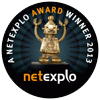
2011-2014
Years before misinformation-fighting apps became a cottage industry, I invented one of the first. While I doing my Master’s at MIT Media Lab, I picked up a product idea I’d been designing for some time to solve my own user need: right-wing conspiracy theories forwarded to me by a close family friend.

LazyTruth was an open source browser extension (and later, email-reply bot) that quickly provided debunks of the viral email hoaxes without the user even having to leave their inbox. Rather than force users to read long, text-heavy factchecking debunks, the goal with LazyTruth was to employ cognitive shortcuts to make fact as accessible as fiction. The goal was to help recipients of viral misinformation easily pull up existing verified information. I succinctly summarized long arguments, employed imagery instead of text, and assertively framed the truth rather than continue repeating falsehoods that were designed to be repeated. Unfortunately, few in the misinformation and factchecking worlds have adopted these practices.
To populate the app, I established partnerships within the fact-checking community: FactCheck.org, PolitiFact, Snopes, and cybersecurity firm Sophos. They allowed our research team to scrape their websites, which we then combined into a single misinformation database. Our team then built an open source Google Chrome extension to call the misinformation database by API when users clicked a button, and find partial matches to accommodate self-evolving email chains. Soon, we replaced the need for a browser extension with a server-side script that automatically replied to users when they forwarded us an email chain.

In a world rife with crazy uncles, LazyTruth struck a nerve and was featured all over the internet, including Engadget, New Scientist, BoingBoing, the New York Times, and the print edition (!!) of the Economist, among other places. I learned the valuable lesson that a tidal wave of media attention doesn’t convert well to browser extension installations, as the app only picked up about 7,000 users with all of that press.

We were honored when LazyTruth won UNESCO’s NetExplo award in Paris. I got to visit UNESCO headquarters and present the cognitive psychology behind LazyTruth to an audience of 800 people. My favorite question there was: “What’s your business model?”
We didn’t have one, other than the fact that my research time and undergraduate developer team were funded. There wasn’t anywhere near as much funding for misinformation apps in 2013 as there is today, so I chose to focus on my Master’s thesis, and eventually closed the project to safeguard our users’ inboxes.
Another recurring question I got about LazyTruth was, “This is great for email, but what about social media?” Even in 2012, it was clear that was where misinformation campaigns were moving. My answer at the time, and to this day, is that the social platforms themselves would have to get involved. Just a few years after LazyTruth, I would get to work on the 2016 US presidential election where online disinformation campaigns took center stage, and where the social platforms did next to nothing to prevent foreign interference. That’s another story, though.
Team
- Extension development, fuzzy matching, and DOM by Justin Nowell
- Extension development and fuzzy matching by David Kim
- Server-side scripting by Stefan Fox
- Visual identity by Yael Alkalay
Press
“Delivering kernels of truth right to your inbox.”

“A great way to make us all even lazier more efficient when it comes to debunking some of the wilder rumors”

“Once a user clears the first (and only) hurdle — installing it as a Chrome extension — the plugin does all the work. The gap between the consumption of misinformation and the correction is reduced to nearly zero.”

“An inbox plugin that analyzes political e-mails and then autocomposes a fact-based response, saving Internet users the trouble of rounding up facts”

“And, Voila, Something That Will Finally Stop Your Crazy Uncle From Sending You More Cracked Forwards”

“Do you still get those, “child stuck in a well, send money” chain emails from family members or friends? They’re annoying to say the least, and chances are you usually just ignore them. However, if you’d like to educate those who send them, LazyTruth is a Chrome extension for Gmail that checks the facts, and replies with the truth.”

“Oh this is great: LazyTruth, a Gmail plugin that uncovers false claims in forwarded emails”

“Companies are developing programs, such as Truthy, TEASE and the wonderfully named LazyTruth, that help people to assess the credibility of online information.”
Seen also in: BoingBoing, TechPresident, The Daily Beast, the Constitutional Rights Foundation, The Verge, TechGlimpse, PC Pro, Canada.com, PSFK, and Yahoo! Finance.